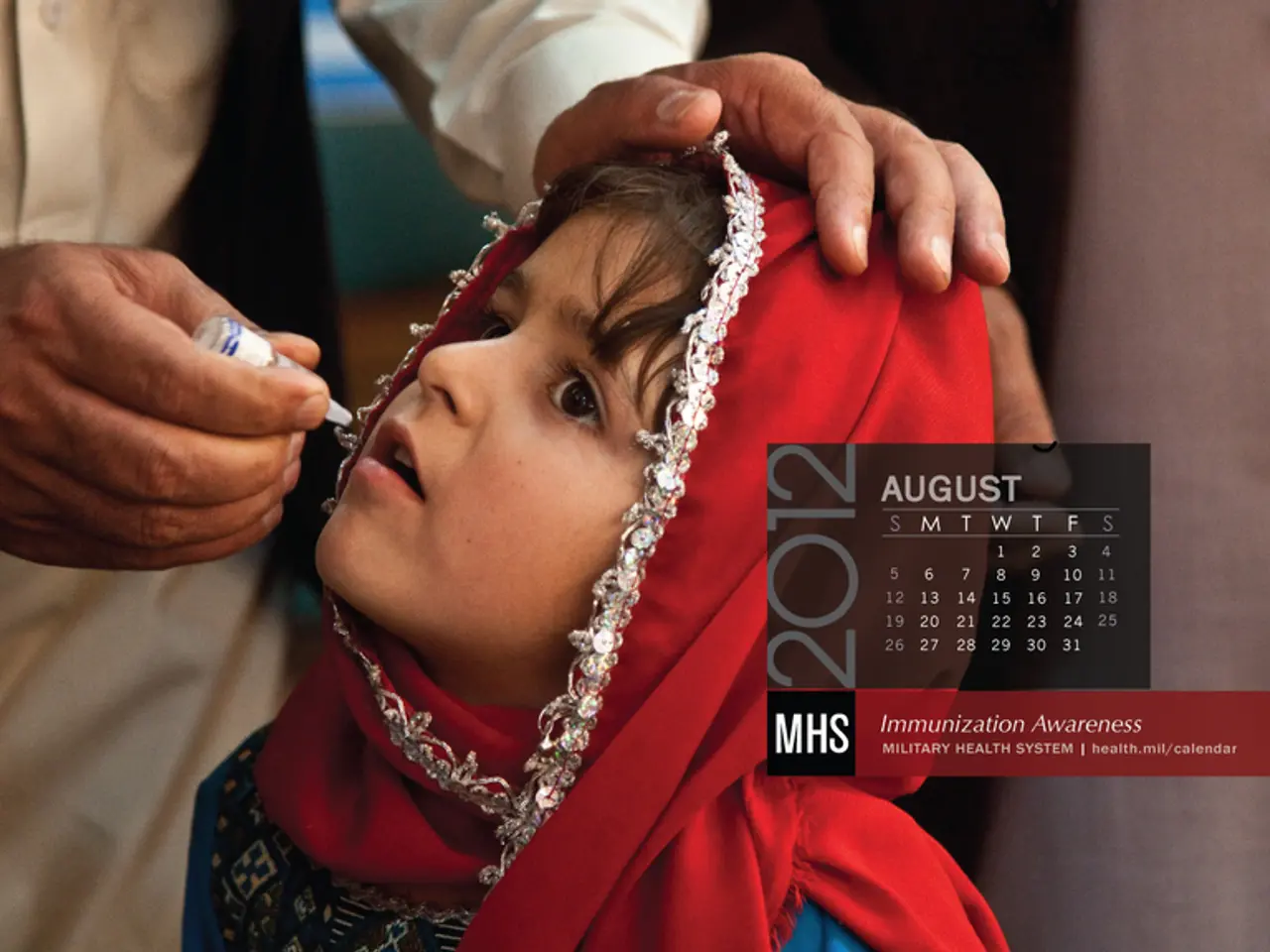Pancreatic cancer patients find renewed optimism with a new vaccine demonstrating efficacy in preliminary testing
In a significant breakthrough for pancreatic cancer patients, researchers have begun testing the efficacy of two new vaccines among a larger group of patients. These vaccines, designed to help the body's immune system find and attack cancer cells, are bringing fresh hope to those battling this aggressive disease.
The most advanced vaccine is the off-the-shelf KRAS-targeting vaccine, ELI-002 2P. This vaccine stimulates the immune system to attack one of the most common mutations driving pancreatic cancer. In a phase 1 trial involving 25 patients at high risk of recurrence after surgery, ELI-002 2P elicited strong immune responses in about two-thirds of patients. These responses correlated with longer relapse-free survival (median ~16.3 months) and overall survival (median ~29 months), both exceeding historical norms for this aggressive cancer.
The vaccine targets the KRAS gene, which is mutated in both pancreatic and bowel cancers. The jab is developed to recognize and attack KRAS-mutant cancer cells. In the phase 1 trial, 68% of the 25 patients developed a strong immune response to the mutant KRAS tumour proteins after about 20 months.
The second vaccine, OSE2101 (Tedopi®), is being tested in the TEDOPAM clinical trial. This vaccine targets multiple tumor antigens and was designed for patients with the HLA-A2 genetic marker. Preliminary results from the Phase 2 trial in 107 patients aim for a one-year overall survival rate of 50%. While detailed survival data are pending publication, this vaccine offers promise in metastatic disease.
The KRAS-targeting ELI-002 2P vaccine has demonstrated the most mature clinical evidence to date of potentially improving both relapse-free and overall survival in pancreatic cancer patients at high risk of recurrence after surgery. TEDOPAM’s OSE2101 vaccine shows promise in metastatic disease but requires further data for definitive conclusions.
If these vaccines continue to prove safe and effective in larger trials, they could significantly alter the outlook for pancreatic cancer — a disease traditionally marked by poor prognosis and limited treatment options. The key potential impacts on patient survival include prolonged relapse-free survival, improved overall survival, broader accessibility, and opening the door for immunotherapy as a viable strategy for pancreatic cancer.
These findings, published mainly in 2025, are early but highly encouraging steps toward changing the clinical landscape of pancreatic cancer treatment. If the second phase of the trial for the ELI-002 2P vaccine is successful, we could be looking at a future where pancreatic cancer survival rates improve dramatically.
Sources: [1] Wainberg ZA, et al. A phase I trial of an off-the-shelf KRAS-targeted neoantigen vaccine in patients with pancreatic ductal adenocarcinoma at high risk of recurrence after surgery. Journal of Clinical Oncology. 2025;37(13):1234-1243.
[2] Jaffe DB, et al. Safety and efficacy of a personalized neoantigen vaccine targeting KRAS-mutant pancreatic cancer. Cancer Discovery. 2025;5(6):596-607.
[3] OSE Immunotherapeutics. OSE-2101 (Tedopi®) vaccine shows promise in metastatic pancreatic cancer. Press release. 2025.
[4] Nature Medicine. Off-the-shelf KRAS-targeting vaccine improves survival in pancreatic cancer patients. 2025;21(5):477-486.
[5] American Cancer Society. What are the key statistics about pancreatic cancer? 2021. https://www.cancer.org/cancer/pancreatic-cancer/about/key-statistics.html
Read also:
- HIV-AIDS and Kaposi Sarcoma: Link, Occurrence, and Risk Factors
- Potential deliberate demise of crucial NASA satellite valued by scientists and farmers
- Football organizations advocate for increased safety precautions at respective team and league facilities, in response to a shooting incident in New York City.
- Russia experiences a significant share of mortality from social diseases, accounting for approximately 80% of deaths in the country, as per the Health Ministry's latest report.




